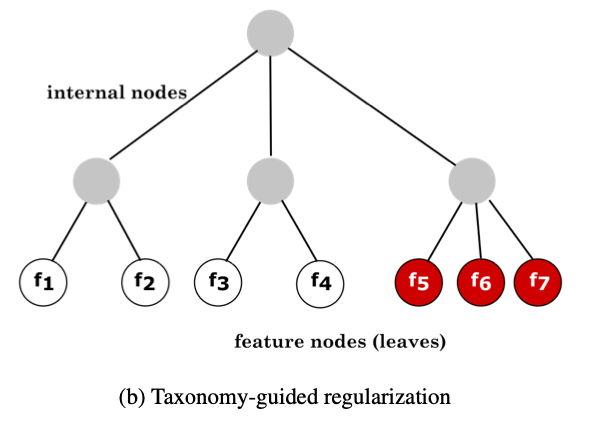Abstract
Preventable hospital readmissions have been identified as one of the primary targets for reducing costs and improv- ing healthcare delivery. However, most data driven studies for understanding readmissions have produced non-interpretable black boxes, which precludes them from being used effec- tively within the decision support systems in the hospitals. A novel strategy to improve the interpretability of a linear model by incorporating domain knowledge is proposed here. The central idea is to exploit the hierarchical relationships among the features (medical diagnosis codes, in this case) using a tree-structured sparsity-inducing regularization norm. The proposed method transforms the hierarchical relations among features into a graph and then applies graph-guided regular- ization during the model learning. Additionally, an evaluation metric is proposed to quantify the interpretability of a linear model with respect to the domain hierarchy. Results on two healthcare claims data sets are shown, where a model is learnt to predict a patient’s risk of readmission, based on the medi- cal history and other relevant features. Results show that the proposed method is able to learn a model which can predict readmission risk with accuracies that are comparable to ex- isting methods, but produces a highly interpretable output, which allows medical experts to draw clinically relevant in- sights and identify key factors associated with hospital read- missions. Some of these factors conform to existing beliefs, e.g., impact of surgical complications and infections during hospital stay. Other factors, such as the impact of mental dis- order and substance abuse on readmission, provide empirical evidence for several pre-existing but unverified hypotheses. The findings of this study will be instrumental in designing the next generation decision support systems for preventing readmissions.
BibTex
@inproceedings{Jiang2019,
author="Jialiang Jiang and Varun Chandola and Sharon Hewner",
year="2019",
booktitle="Proceedings of AAAI Spring Symposium on Machine Learning and Knowledge Engineering (AAAI-MAKE)",
year="2019",
}
